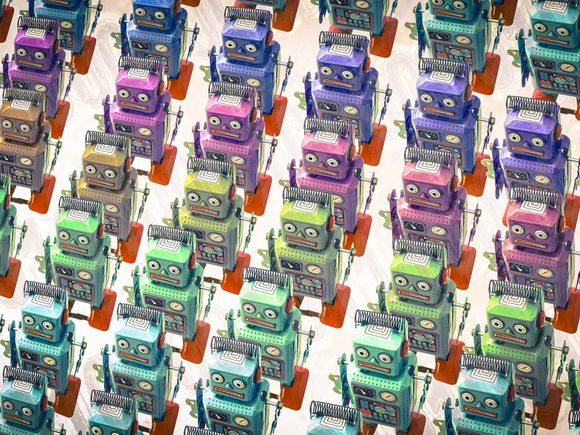Economics
Technological advances, rapid demographic change and a warming climate are among the many major challenges facing us. A clearer understanding of what this means for our economies can help governments and business make better decisions on a range of issues, from encouraging innovation, tackling inequality, to responding to climate change.
Latest
Are mergers necessary for 5G networks?
Research from the Oxford Martin Programme on Technological and Economic Change explores whether mergers in the mobile network industry benefit consumers, or if a new business trend in the sector might be a better approach.
Work with nature to unlock economic prosperity, says major Oxford study
Nature-based solutions involve working with and enhancing nature to address societal challenges – such as climate change - in ways that benefit local communities and biodiversity. A comprehensive review of the economic impacts of nature-based solutions, published today in PLOS Climate, concludes they can unlock prosperity by boosting local economies, increasing agricultural productivity and creating jobs.
How insurance fuels action for development, climate and biodiversity goals
This week sees three major international conferences with the potential to shape the future of development – the G7, the IMF/World Bank Annual Meetings and the United Nations Biodiversity Conference. A common theme is how to mobilise private sector investment and innovation for development and biodiversity and climate goals. As global leaders sit down with financiers to find solutions, insurers should also get a prominent seat at the table. We argue that insurance plays five crucial roles in unlocking innovation and investment and give examples of how insurers are already helping to protect and restore nature.
Systemic Resilience researchers work with World Bank on climate shocks
The Oxford Martin Systemic Resilience Initiative recently demonstrated its expertise in advancing practical solutions to manage global shocks – particularly those related to climate and nature risks in emerging market and developing economies (EMDEs) – by holding a series of thought leadership discussions and executive teaching workshops attended by World Bank leaders and over 30 senior officials from Ministries of Finance and financial regulators from more than 20 countries.
New programmes focus on AI threats, ‘second-life’ EV batteries and digital pandemic tools
The Oxford Martin School has announced three new programmes for 2024 that aim to develop research solutions to the most pressing 21st century issues. They will tackle the critical challenges of how we can improve our ability to detect attacks on AI systems; effectively redeploy electric vehicle batteries through ‘second-life’ schemes when they reach the end of their life; and optimally and ethically employ digital tools during a pandemic.
It's time for ‘adaptation smart’ credit ratings that account for climate change
Climate change isn’t just an environmental issue — it’s a financial one too. For financial institutions, but also for governments.
Exploring the impact of work permits on refugees in Ethiopia
Ethiopia, one of the world's largest refugee-hosting countries, has about 930,000 refugees from South Sudan, Somalia, and Eritrea as of July 2023 (UNHCR, 2023). So, how can we ensure they can make an important contribution economically and socially?
upcoming events
Long Read: Robot-Proof

To dismiss the threat of automation is to get the history wrong
When it comes to debates around the future of work, there’s a distinct dichotomy. We’ve all heard tell of nightmarish scenarios where huge swathes of workers will be rendered redundant by ‘the march of the machines’. But there are also those who point to the past, to periods of hugely disruptive technological change – revolution, even – which societies have managed to survive, and dismiss the notion of a jobs apocalypse.
Read it Now
Programmes
View allKeep in touch
If you found this page useful, sign up to our monthly digest of the latest news and events
Subscribe